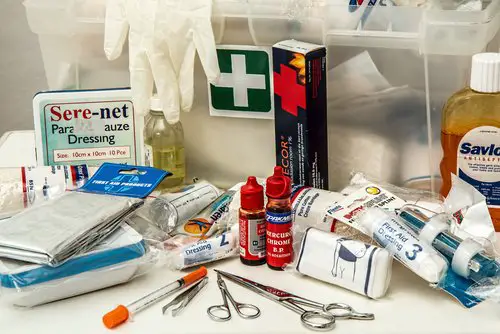Packing Your Car for the Perfect Road Trip
There is something particularly liberating about hitting the open road to seek adventure on a road trip. Although it may be quicker to jump on a plane and fly to your chosen destination, traveling by road often rewards you with a more authentic experience of a place where you get the chance to discover hidden gems not always listed in the guidebooks.
However, as liberating as road trips are, they still require careful planning to ensure everything goes smoothly and that you return back home in one piece with lasting good memories. I always take time to plan my routes carefully, book accommodation in advance, and organize my car insurance from the car insurer. This will allow you to avoid road closures, bad weather, and not being able to find a hotel room during peak travel periods.
You’ll of course want to have your car serviced to get it ready for the road, along with making sure your comprehensive car insurance coverage is adequate and up to date. The perfect time to research car insurance quotes online is just before a road trip to see if you’re currently paying too much or to purchase a policy with more coverage options like roadside assist or wind screen replacement that might come in handy during your travels.
Once your itinerary is drawn up and your car deemed fit to hit the open road, it’s then time to start packing. To help you make sure you pack all the essentials for your next road trip, we’ve compiled this list of must-have items that will make your trip much more comfortable and safer.


GPS & Maps
Many cars now come equipped with onboard GPS systems, but if yours lacks the technology, you can always bring a portable GPS unit. Alternatively, you can also use your smartphone and a travel app to help lead you on your journey. Your smartphone can also of course be used to call for help in an emergency and can be loaded up with hours of your favorite music which will come in handy when your preset radio stations drop out of range.
It’s important to remember that it is often illegal to operate a smartphone while driving, so invest in a hands-free kit with Bluetooth that will allow your attention to be focused on the road. It’s also a good idea to pack a paper map. You never know when your GPS may fail or when it may not be updated for your particular area. It’s also possible that your trusted travel app will fail due to a lack of signal in more remote areas.


First Aid Kit
A first aid kit is always a good idea to have in your car, especially if you are heading out on a road trip. Your car first aid kit should contain all the basics including bandages, gauze, pain medication, and burn ointment. A small pair of scissors and some medical tape are also great additions to your first aid kit.
You may also want to pack some aspirin since headaches are a common occurrence due to staying focused on the road for hours at a time. Bring a bottle of hand sanitizer to disinfect your hands after bathroom visits at rest stops or service stations. Soap and sometimes even water is not always provided in all public bathrooms, especially along remote stretches of road. And speaking of roadside bathrooms, you may find they sometimes even lack toilet paper, so having a few rolls packed in the car is always a smart idea.
Food and Water
If you are on a budget, you may want to avoid going through the endless drive-thru windows for your meals on the road. Stop in to the grocery store before your trip and along the way to replenish your stash of dry goods at a fraction of what is charged at service stations or cafes. You may even want to carry a small cooler to help keep sandwiches and perishables last longer in the car.
Bringing your own snacks not only gives you healthier food options, but it is also important if you have certain food allergies you need to stay clear of. It may not always be easy to find gluten free snacks for example. Keep all your dry goods stored together in clear plastic tubs to make your snacks easier to find and clean.
If you are unlucky enough to have a car breakdown on the road you will want to have a reasonable supply of fresh water on board. For any road trip, it’s smart to pack a small case of bottled water that could last you at least a few days in an emergency. You may also want to pack a reusable water bottle you can refill at road stops and hotels. This will save you a bit of money and reduces waste. And speaking of waste, keep your car tidy by packing a small trash can or plastic bag to throw food wrappers and any garbage in so it doesn’t end up all over your car.
Chargers
You don’t want your iPad or smartphone running out of juice on your trip. As discussed earlier, you can use your devices as navigation and simply for much needed entertainment. Make sure that you have all the right adaptors and chargers to keep all your devices charged up. You may even want to look into a solar powered charger if you plan on camping along the way. This will allow you to keep your devices running when not in your vehicle.


Vehicle Emergency Kit
Hopefully you won’t experience a vehicle breakdown, but you need to always be prepared for one just in case. This is especially true if you don’t have roadside assist. You should always have a spare tire, preferably a full-size one, and you should know how to change a tire yourself.
Your vehicle emergency kit should contain booster cables in the event of a dead battery, light sticks, flashlight, reflective vest, warning triangle, tire pressure gauge, and maybe even a selection of spare important fuses and fluids.


Important Documents
As with any travel, having proper documents handy is always required. For road trips, this includes your driver’s license, vehicle registration, copy of your car insurance, and your roadside assist contact information if you have it. You may also need your passport and possibly visas if you plan on crossing any international borders or when taking a road trip abroad. You may even be required to obtain an International Driving Permit (IDP) when renting a car abroad for an international road trip.
You should also make sure your vehicle owner’s manual is in the glove box. You vehicle manual often provides helpful advice for when things aren’t operating properly, including how to make minor fixes, how to change a tire, and when it may be unsafe to continue driving your vehicle.
We hope these tips allow you to experience a stress-free road trip. When done properly, road trips are some of the most memorable trips a traveler can embark on.






















